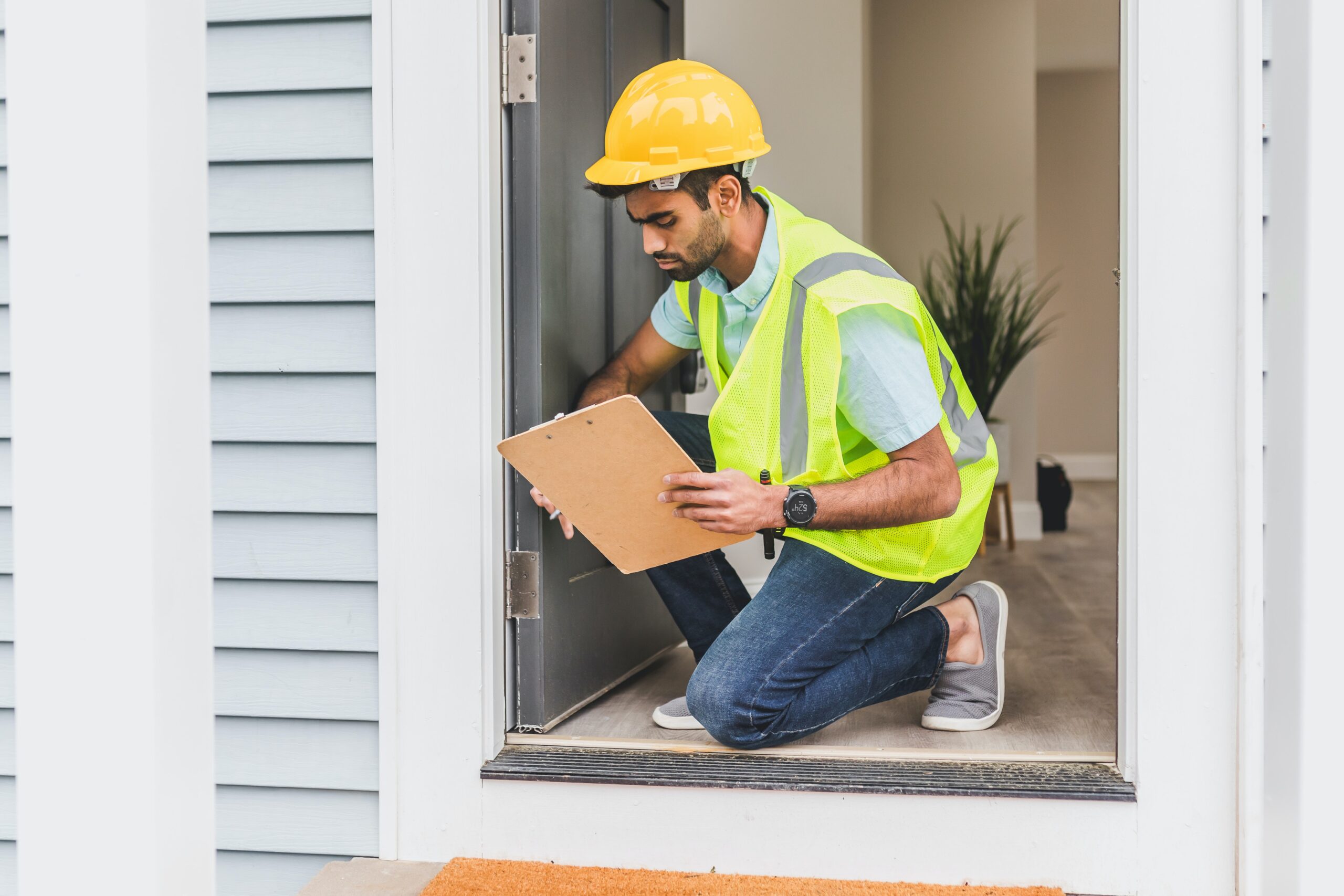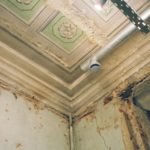Mold inspections are a must for landlords! They help spot and tackle any potential moldy issues in rental properties, keeping tenants healthy and safe. To ensure accuracy and avoid false alarms, hire a professional mold inspector who knows their stuff and has the right tools.
When assessing, inspect high-risk areas like bathrooms, kitchens, basements, and near windows/plumbing. Plus, use moisture meters and thermal imaging cameras to detect hidden moisture.
Based on the results, landlords should act fast to fix any issues. This may include mending leaks or improving ventilation. In some cases, professional mold remediation services may be needed.
By doing regular inspections and solving issues quickly, landlords can protect tenants’ health and their property’s value. Thus, mold inspections are vital for maintaining a safe living environment and preserving rental property over time.
Importance of mold inspection for landlords
Mold inspections are a must for landlords. It helps detect mold early, stopping costly damage and lawsuits. This keeps tenants safe and sound. Regular mold checks guarantee a healthy living environment. Mold can thrive in damp spots like bathrooms, basements, and kitchens, causing breathing troubles and allergic reactions. Landlords are responsible for eliminating health risks.
Unchecked mold can harm the structure of the property. Walls, ceilings, and floors can weaken, endangering the integrity of the home. Inspections spot the signs of moisture or mold growth, allowing landlords to take quick action.
Neglecting mold issues can bring legal consequences. Tenants may sue if they become ill from mold exposure. Landlords may be held responsible, having to pay fines or compensation.
InterNACHI found 20% of homes in the United States have mold issues. Landlords need to conduct mold inspections for tenant safety and to defend themselves from lawsuits.
Steps to conduct a mold inspection:
Do a mold inspection to maintain a safe living situation for landlords. Follow these steps:
- Look at the outside of the property. Are there leaky roofs or broken gutters? These can be entry points for moisture and mold.
- Inside, check bathrooms, kitchens, basements, and laundry rooms for visible signs of mold like damp walls, floors, or ceilings.
- Use a moisture meter to detect hidden moisture. Mold grows in dampness, like from plumbing leaks or condensation.
- Inspect HVAC systems and ventilation openings. Mold spreads from dirty filters.
- If you spot suspicious areas or worry about mold, hire a pro to test air samples and take samples for laboratory analysis.
- Document findings with photos and notes. This info helps when talking to tenants or contractors.
Preventing mold is better than dealing with consequences. Regular inspections and maintenance help avoid costly repairs and keep tenants safe. Inspect even if no visible mold. Don’t wait – do regular inspections to protect your investment and people.
Interpreting the results of the inspection
Interpreting results is key. Here’s what it means:
Potential mold growth areas: Areas with humidity & poor air flow can be breeding grounds for mold. Pinpointing these helps put preventive steps in place, like fixing leaks or improving air circulation.
Mold spore count: Number of spores in the air reflects contamination level. High counts need pro remediation, while low levels can be managed with regular cleaning & maintenance.
Types of mold present: Different kinds of mold have different health risks & treatments. Identifying these helps figure out best remediation strategies & inform affected people of potential health hazards.
Extent of mold damage: Assessing damage helps landlords allocate resources properly. Minor damage may just need surface cleaning & fixing underlying issues. Extensive damage might call for more repairs or renovations.
Suggestions for interpreting & responding to the results:
- Consult a qualified professional: A licensed inspector can give accurate assessments & steer you through the process. Their expertise ensures comprehensive evaluations & tailored recommendations.
- Act swiftly on high levels or toxic molds: High spore counts or toxic molds like Stachybotrys need urgent attention. Professional remediation helps avoid health risks from getting worse or spreading.
- Address underlying causes: Mold growth might be a sign of underlying issues – like water leaks, bad insulation, or poor air flow. Solving these at the root is key to avoiding future outbreaks & keeping a healthy living environment.
Interpreting inspection results thoroughly will help landlords take care of mold-related concerns in their properties, safeguarding tenants & making them happy. Ignoring mold is like pretending your ex never happened – it’ll eventually catch up with you.
Taking necessary actions based on the findings:
It’s vital for landlords to take action based on the results of a mold inspection. Here’s a 6-Step Guide to help you through:
- Find out the extent of the mold: Work out the areas affected and judge how bad the mold is.
- Do immediate remediation: Act quickly to get rid of the mold you can see, and tackle the cause of it.
- Consult with experts: Call in specialists in mold removal who can guide and advise you.
- Fix and restore: Put right any damage caused by moisture or mold, cleaning, drying and sanitizing the affected areas.
- Monitor and prevent further growth: Regularly inspect and keep your property in order, to stop mold coming back. Deal with water leaks and dampness straight away.
- Keep records: Save evidence of all inspections, repairs and maintenance, to show your commitment to tenant safety.
It’s also vital to talk openly with tenants about your findings, answering their queries quickly and giving them info on how you are dealing with the problem.
GreenWorks Environmental LLC report that around 50% of US homes have some form of mold, so landlords need to do regular mold inspections. Don’t let mold become your tenant’s 4th roommate – unless you want them to pay rent in spores!
Legal obligations and responsibilities for landlords regarding mold
Landlords must be knowledgeable about local laws and regulations regarding mold in rental properties – this can differ from state to state. It’s also essential they disclose any known mold issues to potential tenants and provide them with remediation info.
Neglecting mold issues can lead to legal disputes and cause landlords to be liable for damages or health issues.
To avoid this, landlords should:
- Get professional mold inspectors
- Invest in preventative maintenance
- Educate tenants on mold prevention
An example: a tenant with respiratory problems due to prolonged mold exposure sued their landlord for medical expenses, relocation costs and emotional distress. The court ruled in favor of the tenant.
This highlights the significance of landlords fulfilling their legal obligations with regards to mold prevention and remediation.
Educating tenants about mold prevention and maintenance
Tenants must be informed of the criticality of proper ventilation. Encourage them to open windows periodically, for fresh air circulation and lower humidity levels. This can really reduce the possibility of mold growth.
Furthermore, tenants must be alert for any signs of leakages or moisture. A small leak can cause a large mold problem if not fixed quickly. They should be instructed to report any leaks right away for necessary repairs.
Cleaning habitually is also very helpful for preventing mold. Teach tenants the value of keeping their living space clean and dry. Stress the importance of wiping down surfaces regularly and cleaning up spills quickly.
Finally, it’s essential for landlords to remind tenants that their health and well-being can be affected by mold. Exposure to mold can cause various respiratory issues and allergies, which can have a negative impact on their quality of life. Taking proactive measures and following the guidelines provided can protect them from potential health risks associated with mold.
Conclusion
For landlords, a comprehensive mold inspection is critical to safeguard their tenants’ welfare. Here are some primary insights:
- Locating probable moisture sources is essential. Leaks, condensation and inadequate ventilation can lead to mold proliferation.
- Routine upkeep and immediate repairs can avert mold problems from worsening. Rapid action is necessary to restrict the spread of mold.
- Engaging a certified mold inspector is recommended. Their proficiency and specialised apparatus can detect concealed mold and ascertain its scope.
- Documentation of the inspection procedure, including snaps and meticulous records, acts as invaluable proof in case of conflicts or court proceedings.
Moreover, teaching tenants regarding the importance of correct ventilation, reducing moisture accumulation, and informing any signs of mold at once can help prevent widespread contamination. Landlords should also think about regular follow-up inspections to guarantee that long-term mold prevention endeavours are efficient.
Pro Tip: Keep in mind that tackling slight mold issues early on saves money, time, and potential health hazards in the future. Take prompt and proactive action when it comes to mold inspection and remediation.
Frequently Asked Questions
Q: What is a mold inspection?
A: A mold inspection is a visual examination of a property to identify the presence of mold growth and determine its cause and severity.
Q: How often should landlords conduct mold inspections?
A: Landlords should conduct mold inspections regularly, especially in areas prone to moisture, such as basements, bathrooms, and kitchens. It is recommended to schedule inspections annually or whenever signs of moisture or mold are noticed.
Q: Can tenants request a mold inspection?
A: Yes, tenants have the right to request a mold inspection if they suspect mold growth in their rental property. Landlords should address such requests promptly and arrange for professional mold inspectors to assess the situation.
Q: Who is responsible for mold remediation, the landlord or tenant?
A: The responsibility for mold remediation depends on the cause of mold growth. If mold is a result of the landlord’s negligence, such as a leaky roof or plumbing issue, the landlord is typically responsible. However, if tenants’ actions, like excessive moisture accumulation due to improper ventilation, lead to mold growth, they may be held responsible.
Q: Are landlords required to provide a mold inspection report to tenants?
A: There is no universal requirement for landlords to provide mold inspection reports to tenants. However, it is good practice to keep records of mold inspections, including findings and any remediation measures taken, for transparency and legal purposes.
Q: Can mold inspections help prevent potential health issues?
A: Yes, mold inspections can help identify and address mold growth early on, minimizing the risk of potential health issues associated with prolonged exposure to mold, such as respiratory problems and allergies.
Dave is a seasoned real estate investor with over 12 years of experience in the industry. Specializing in single-family residential real estate, David’s strategic approach combines market analysis, financial acumen, and a deep understanding of urban development trends to maximize investment returns.










